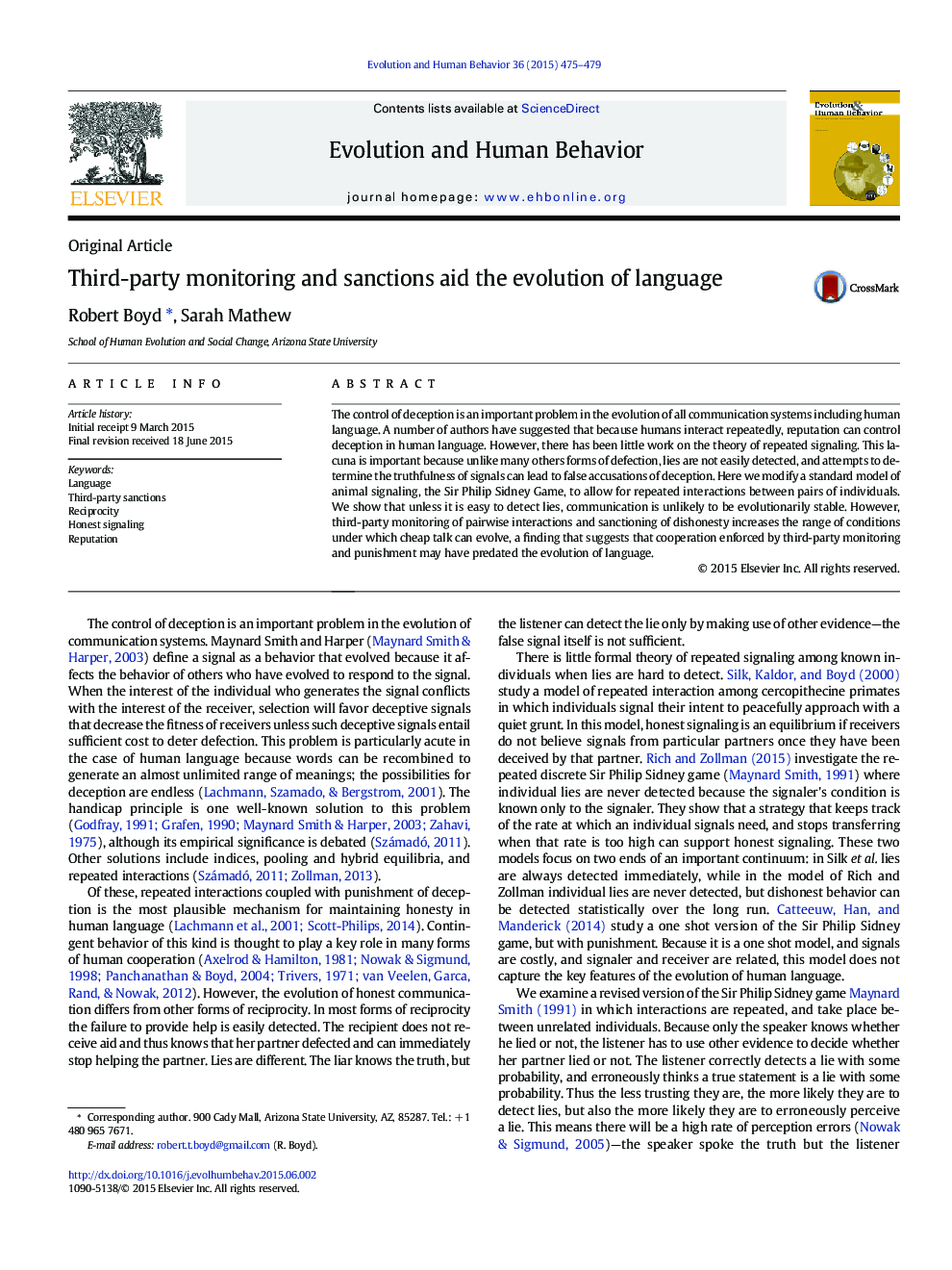| Article ID | Journal | Published Year | Pages | File Type |
|---|---|---|---|---|
| 943225 | Evolution and Human Behavior | 2015 | 5 Pages |
The control of deception is an important problem in the evolution of all communication systems including human language. A number of authors have suggested that because humans interact repeatedly, reputation can control deception in human language. However, there has been little work on the theory of repeated signaling. This lacuna is important because unlike many others forms of defection, lies are not easily detected, and attempts to determine the truthfulness of signals can lead to false accusations of deception. Here we modify a standard model of animal signaling, the Sir Philip Sidney Game, to allow for repeated interactions between pairs of individuals. We show that unless it is easy to detect lies, communication is unlikely to be evolutionarily stable. However, third-party monitoring of pairwise interactions and sanctioning of dishonesty increases the range of conditions under which cheap talk can evolve, a finding that suggests that cooperation enforced by third-party monitoring and punishment may have predated the evolution of language.
